#marcelo pérez del castillo
Explore tagged Tumblr posts
Text

I've been sitting on this for a while. It was just a little drawing exercise/study that got a bit out of control. This was going to be part of a set (and there's some that are more tongue-in-cheek) but then I learned that Marcelo's birthday was March 26th.
And as a fellow March baby, I felt it deserved to be celebrated in some way. :)
#la sociedad de la nieve#society of the snow#marcelo pérez del castillo#diego vegezzi#melis draws stuff#tbh this would make a nice sticker i think
56 notes
·
View notes
Text
It was Marcelo's birthday yesterday (26/3/1947).
Happy belated birthday in heaven, Marcelo Pérez del Castillo, thank you for your devotion and bravery x

(Photo credit)
2 notes
·
View notes
Text
Roberto Canessa and Pancho Delgado in 1973

Francisco Abal (Nando's best friend) and Marcelo Pérez del Castillo (the team captain)

The Strauch cousins

32 notes
·
View notes
Text


Un feliz cumpleaños celestial tardío para nuestro querido eterno Capitán, Marcelo Pérez del Castillo 💚
#la sociedad de la nieve#society of the snow#flight 571#miracle in the andes#marcelo perez del castillo
10 notes
·
View notes
Note
hey! do you have any recommendations for poetry by latinx writers?
I’ve made three lists here to give a full range of what’s out there and they've been merged into Poetry Collections by Latinx Writers: New in 2020 & 2021 & Poetry Collections by Latinx Writers: 2019 & Earlier on Bookshop if you’re so inclined. Hopefully at least one of these interests you. ❤️
Poetry Collections by Latinx Writers: 2019 & Before (Ones I’ve Read & Enjoyed)
Slow Lightning by Eduardo C. Corral
Beastgirl & Other Origin Myths by Elizabeth Acevedo
Loose Woman: Poems by Sandra Cisneros
The Carrying: Poems by Ada Limón
Citizen Illegal by José Olivarez
Lessons on Expulsion: Poems by Erika L. Sánchez
peluda by Melissa Lozada-Oliva
My Wicked Wicked Ways by Sandra Cisneros
lo terciario / the tertiary by Raquel Salas Rivera
Teeth Never Sleep: Poems by Ángel García
Lima :: Limón by Natalie Scenters-Zapico
while they sleep (under the bed is another country) by Raquel Salas Rivera
Sharks in the Rivers by Ada Limón
A Tongue in the Mouth of the Dying by Laurie Ann Guerrero
blud by Rachel McKibbens
Virgin: Poems by Analicia Sotelo
The Glimmering Room by Cynthia Cruz
Unaccompanied by Javier Zamora
The Black Maria by Aracelis Girmay
Girl with Death Mask by Jennifer Givhan
Cenzontle by Marcelo Hernandez Castillo
Brother Bullet: Poems by Casandra López
The Inheritance of Haunting by Heidi Andrea Restrepo Rhodes
Milk and Filth by Carmen Giménez Smith
Corazón by Yesika Salgado
Refuse: Poems by Julian Randall
Ordinary Beast by Nicole Sealey
Cuicacalli / House of Song by ire'ne lara silva
Tracing the Horse by Diana Marie Delgado
With the River on Our Face by Emmy Pérez
Museum of the Americas by J. Michael Martinez
Paraíso: Poems by Jacob Shores-Argüello
Gold That Frames the Mirror by Brandon Melendez
Miami Century Fox by Legna Rodríguez Iglesias
Of Form & Gather by Felicia Zamora
Palm Frond with Its Throat Cut by Vickie Vértiz
Elegía/elegy by Raquel Salas Rivera
The Crazy Bunch by Willie Perdomo
Colonize Me by Benjamín Naka-Hasebe Kingsley
Poetry Collections by Latinx Writers: 2019 & Before (TBR)
Of Darkness and Tumbling by Mónica Gomery
Preparing the Body by Norma Liliana Valdez
Ugly Music by Diannely Antigua
Ceremony of Sand by Rodney Gomez
Stereo. Island. Mosaic. by Vincent Toro
Other Musics: New Latina Poetry ed. Cynthia Cruz
Meditación Fronteriza: Poems of Love, Life, and Labor by Norma Elia Cantú
Beast Meridian by Vanessa Angélica Villarreal
You Ask Me To Talk About The Interior by Carolina Ebeid
YOU DA ONE by Jennif(f)er Tamayo
These Days Of Candy by Manuel Paul Lopez
Unpeopled Eden by Rigoberto González
Advantages of Being Evergreen by Oliver Baez Bendorf
Each and Her by Valerie Martínez
Skins of Columbus by Edgar Garcia
When I Walk Through That Door, I Am: An Immigrant Mother's Quest by Jimmy Santiago Baca
Landscape with Headless Mama: Poems by Jennifer Givhan
Solecism by Rosebud Ben-Oni
Heart Like A Window, Mouth Like A Cliff by Sara Borjas
Scar on / Scar Off by Jennifer Maritza McCauley
¡Manteca!: An Anthology of Afro-Latin@ Poets ed. Melissa Castillo-Garsow
Grenade in Mouth: Some Poems of Miyo Vestrini by Miyo Vestrini
How to Pull Apart the Earth by Karla Cordero
All My Heroes Are Broke by Ariel Francisco
black / Maybe by Roberto Carlos Garcia
Blood Sugar Canto by ire'ne lara silva
The Book of What Remains by Benjamin Alire Sáenz
The Black Flower and Other Zapotec Poems by Natalia Toledo
Forgive the Body This Failure by Blas Falconer
Tijuana Book of the Dead by Luis Alberto Urrea
FUEGO by Leslie Contreras Schwartz
Puerto Rico en Mi Corazón ed. Carina del Valle Schorske
Dirt and Honey by Raquel Vasquez Gilliland
Cruel Futures by Carmen Giménez Smith
The Real Horse: Poems by Farid Matuk
A Song of Dismantling: Poems by Fernando Pérez
Arsonist by Joaquín Zihuatanejo
Comfort Measures Only: New and Selected Poems, 1994–2016 by Rafael Campo
Poetry Collections by Latinx Writers: 2020 & 2021
Postcolonial Love Poem: Poems by Natalie Diaz
Thresholes by Lara Mimosa Montes
Catrachos: Poems by Roy G. Guzmán
Repetition Nineteen by Mónica de la Torre
Like Bismuth When I Enter by Carlos Lara
The Breakbeat Poets Vol. 4: LatiNext ed. Felicia Chavez
Guillotine: Poems by Eduardo C. Corral
Migratory Sound: Poems by Sara Lupita Olivares
Thrown in the Throat by Benjamin Garcia
Not Go Away Is My Name by Alberto Ríos
Guidebooks for the Dead by Cynthia Cruz
Geographic Tongue by Rodney Gomez
Tertulia by Vincent Toro
Borderland Apocrypha by Anthony Cody
Every Day We Get More Illegal by Juan Felipe Herrera
Body of Render by Felicia Zamora
La Belle Ajar by Adrian Ernesto Cepeda
Feel Puma: Poems by Ray Gonzalez
On This Side of the Desert by Alfredo Aguilar
In Bloom by Esteban Rodriguez
An Incomplete List of Names: Poems by Michael Torres
Who Speaks for Us Here by Leslie Contreras Schwartz
The Fire Eater: Poems by Jose Hernandez Diaz
After Rubén by Francisco Aragón
#ineffabull#poetry recs#Latinx poets#asks#out of my collection#long post#i literally do not know what is up with tumblr's read more option#i had it#then it broke#now it's showing the whole post#so attempt 3
182 notes
·
View notes
Photo
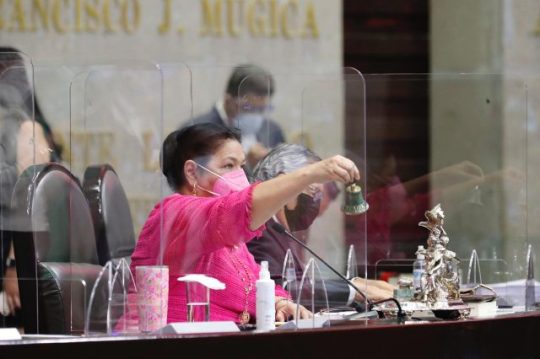
New Post has been published on https://notimundo.com.mx/politica/mesa-directiva-dio-cuenta-de-oficios-de-diputadas-y-diputados/
Mesa Directiva dio cuenta de oficios de diputadas y diputados.

Mesa Directiva dio cuenta de oficios de diputadas y diputados que participarán en elección consecutiva.
La diputada Sauri Riancho dijo que en términos del último párrafo del sexto resolutivo del “Acuerdo de los órganos de gobierno de la Cámara de Diputados, por el que se establecen disposiciones internas aplicables a diputadas y diputados federales que opten por la elección consecutiva en el proceso electoral 2020-2021”, manifiestan su voluntad de renunciar a los apoyos económicos a los que tienen derecho.
Enseguida, pidió a la secretaría de la Mesa Directiva dar lectura a los nombres de las diputadas y los diputados.
Por MC, Mario Alberto Rodríguez Carrillo y Juan Martín Espinoza Cárdenas.
Del PVEM, Leticia Mariana Gómez Ordaz, Lilia Villafuerte Zavala y Roberto Antonio Rubio Montejo.
De Encuentro Social, Manuel de Jesús Baldenebro Arredondo, Irma María Terán Villalobos, Jorge Arturo Argüelles Victorero, Esmeralda de los Ángeles Moreno Medina, Leticia Arlett Aguilar Molina y Nancy Claudia Reséndiz Hernández.
Por Acción Nacional, Justino Eugenio Arriaga Rojas, Juan Carlos Romero Hicks, Luis Alberto Mendoza Acevedo, Karen Michel González Márquez, José Salvador Rosas Quintanilla, Gloria Romero León y Patricia Terrazas Baca.
Del PRI, Alfredo Villegas Arreola, Frinné Azuara Yarzábal, Brasil Alberto Acosta Peña, Cynthia Iliana López Castro, Pablo Guillermo Angulo Briceño, Laura Barrera Fortoul, Ricardo Aguilar Castillo, María Ester Alonzo Morales e Ismael Alfredo Hernández Deras.
Por el PT, Ana Karina Rojo Pimentel, María de Jesús Rosete Sánchez, José Gerardo Rodolfo Fernández Noroña, Francisco Favela Peñuñuri, Alfredo Porras Domínguez, Claudia Angélica Domínguez Vázquez, Margarita García García, Luis Enrique Martínez Ventura, Jesús Fernando García Hernández, Alfredo Femat Bañuelos, Clementina Marta Dekker Gómez, Óscar González Yáñez y Dionicia Vázquez García.
También, José Luis Montalvo Luna, Elba Lorena Torres Díaz, María Teresa Marú Mejía, José Luis García Duque, Francisco Javier Huacus Esquivel, Armando Reyes Ledesma, Santiago González Soto, Olga Juliana Elizondo Guerra, Maribel Martínez Ruiz, Ángel Benjamín Robles Montoya, Hildelisa González Morales, Ana Laura Bernal Camarena, Mauricio Alonso Toledo Gutiérrez y Nelly Maceda Carrera.
Por Morena, Heriberto Marcelo Aguilar Castillo, Maribel Aguilera Cháirez, Aleida Alavez Ruiz, María Isabel Alfaro Morales, Karla Yuritzi Almazán Burgos, Guillermina Alvarado Moreno, José Guadalupe Ambrocio Gachuz, Socorro Irma Andazola Gómez, Carol Antonio Altamirano, Reyna Celeste Ascencio Ortega, María del Carmen Bautista Peláez, Rosa María Bayardo Cabrera, Francisco Javier Borrego Adame, Wendy Briceño Zuloaga, Susana Cano González, Olegaria Carrazco Macías, Alejandro Carvajal Hidalgo, Katia Alejandra Castillo Lozano, María Chávez Pérez, Miguel Ángel Chico Herrera, Gustavo Contreras Montes y Flora Tania Cruz Santos.
Asimismo, Diego Eduardo del Bosque Villarreal, Rosalinda Domínguez Flores, Roberto Ángel Domínguez Rodríguez, José Luis Elorza Flores, Brenda Espinoza López, María Bertha Espinoza Segura, Melba Farías Zambrano, Lidia García Anaya, Martha Olivia García Vidaña, Pablo Gómez Álvarez, Sandra Paola González Castañeda, Erasmo González Robledo, Juanita Guerra Mena, Yolanda Guerrero Barrera, Óscar Eugenio Gutiérrez Camacho, Daniel Gutiérrez Gutiérrez, Sergio Carlos Gutiérrez Luna, César Agustín Hernández Pérez, María Eugenia Hernández Pérez, Arturo Roberto Hernández Tapia, Rafael Hernández Villalpando, Javier Hidalgo Ponce, Benjamín Saúl Huerta Corona y María de los Ángeles Huerta del Río.
También, Miguel Pável Jarero Velázquez, Irma Juan Carlos, Claudia López Rayón, Adriana Lozano Rodríguez, Mirna Zabeida Maldonado Tapia, Sergio Mayer Breton, Jorge Luis Montes Nieves, Carmen Mora García, Alma Delia Navarrete Rivera, Manuela del Carmen Obrador Narváez, Aracely Ocampo Manzanares, Sandra Simey Olvera Bautista, Alejandra Pani Barragán, Inés Parra Juárez, Jaime Humberto Pérez Bernabe, Beatriz Dominga Pérez López, Laura Imelda Pérez Segura, Miguel Ángel Prado de los Santos, Verónica Ramos Cruz, Guadalupe Ramos Sotelo y Valentín Reyes López.
Además, Fortunato Rivera Castillo, Beatriz Robles Gutiérrez, Martha Robles Ortiz, Manuel Rodríguez González, Ana María Rodríguez Ruiz, María Guadalupe Román Ávila, Carlos Sánchez Barrios, Graciela Sánchez Ortiz, Juan Pablo Sánchez Rodríguez, Azael Santiago Chepi, Yadira Santiago Marcos, Claudia Tello Espinoza, Rosalba Valencia Cruz, Lorenia Iveth Valles Sampedro, Víctor Gabriel Varela López, Teresita de Jesús Vargas Meraz, Julieta Kristal Vences Valencia, Alberto Villa Villegas y Silvia Lorena Villavicencio Ayala.
También, Dulce María Corina Villegas Guarneros, Casimiro Zamora Valdez, Erika Vanessa del Castillo Ibarra, Evaristo Lenin Pérez Rivera, Paola Tenorio Adame, Emmanuel Reyes Carmona, Irán Santiago Manuel, Nayeli Salvatori Bojalil, Vicente Alberto Onofre Vázquez, Francisco Elizondo Garrido, Ulises Murguía Soto, Laura Mónica Guerra Navarro, Nayeli Arlen Fernández Cruz, Moisés Ignacio Mier Velazco y Alfonso Ramírez Cuéllar.
Conforme a dichos oficios, renuncian al apoyo económico correspondiente a asistencia legislativa, atención ciudadana, transporte y hospedaje y al informe de actividades legislativas, por el periodo que comprende del 1 de abril al 15 de junio del año en curso.
2 notes
·
View notes
Photo
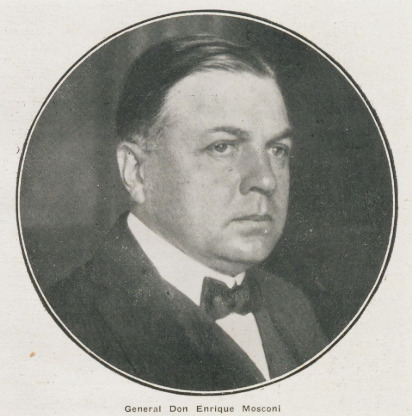
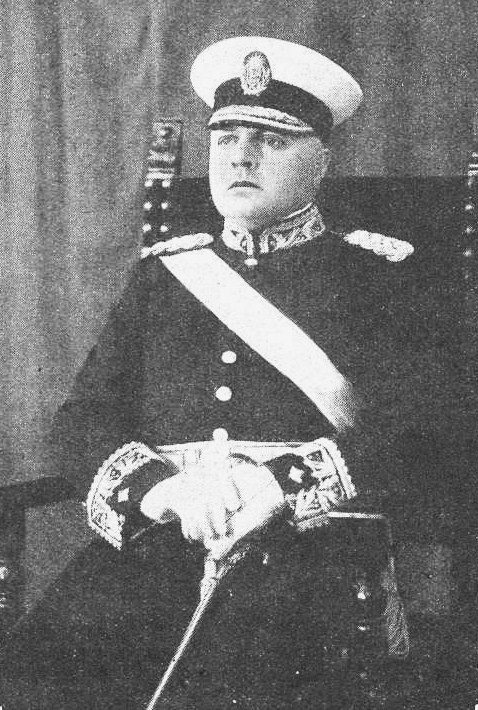
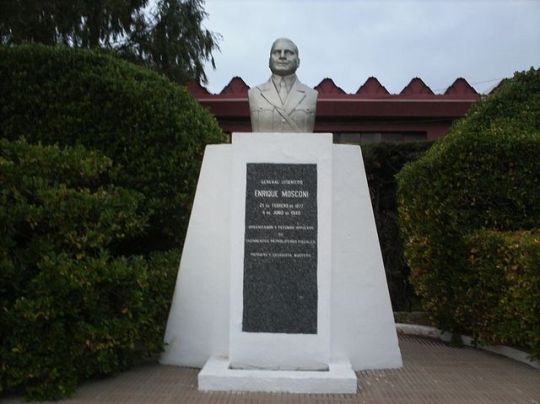
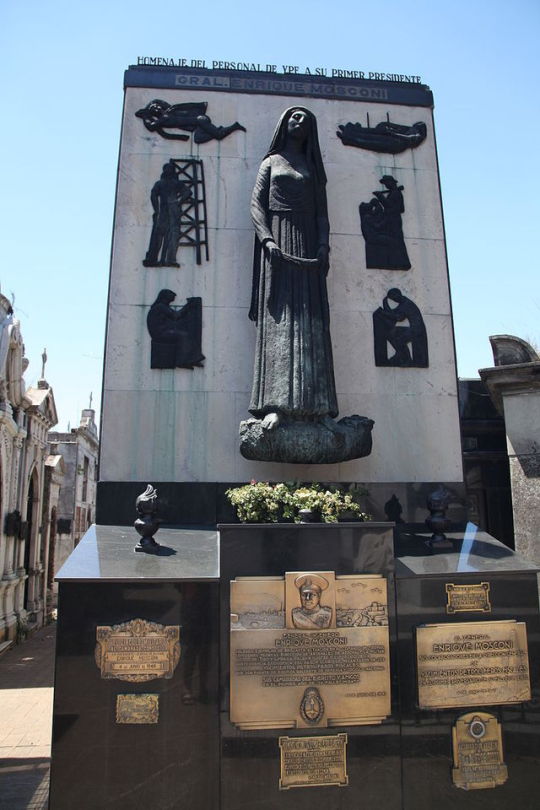
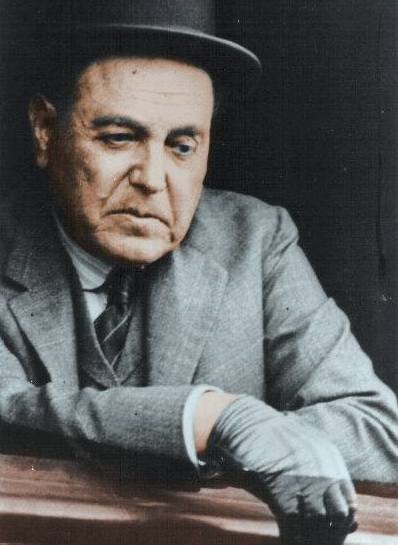
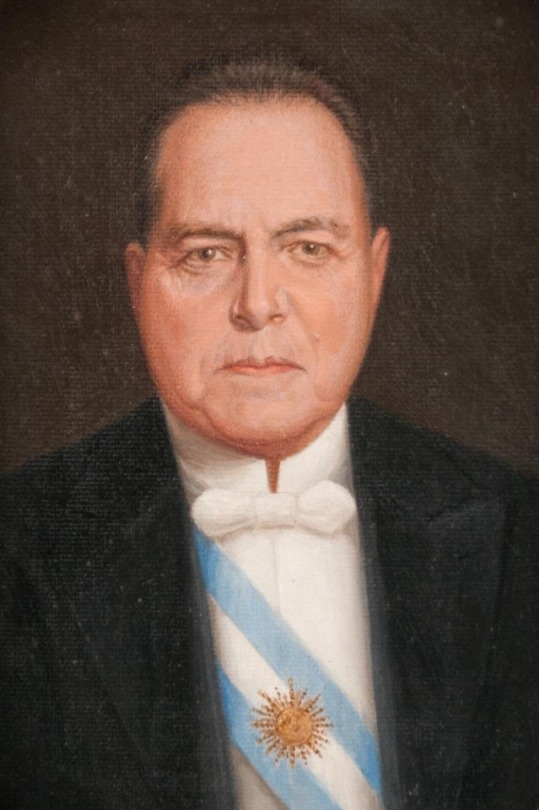

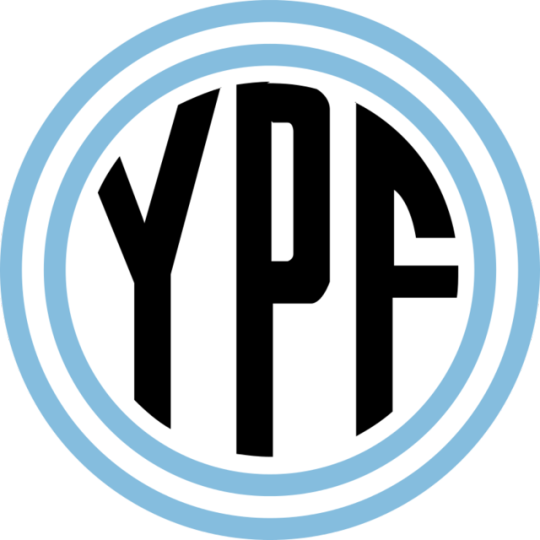
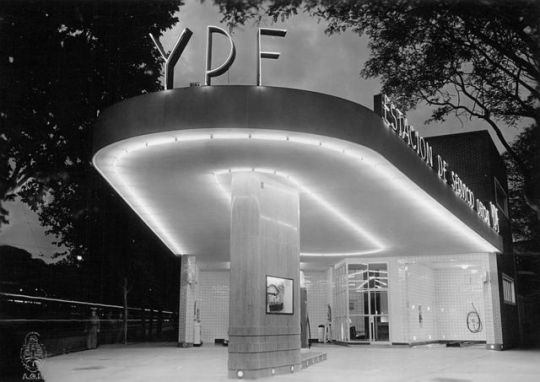
Enrique Carlos Alberto Mosconi (21 February 1877 – 4 June 1940) was an Argentine military engineer, who is best known as the pioneer and organizer of petroleum exploration and extraction in Argentina.[2]
Mosconi was born in Buenos Aires to Enrico Mosconi, an Italian engineer hired to build railroads, and María Juana Canavery, an Argentine of Irish descent. Enrico Mosconi founded the town of Villa Gobernador Gálvez on 26 February 1888. Enrico Mosconi wanted a medical doctor son; his mother wanted her son to follow the family military tradition of Ángel Canavery, his uncle, who had taken part in the Conquest of the Desert.
In 1903 he was transferred to the Engineering division of the Army as a military engineer, and in 1904 he received a prize for a construction project. Between 1906 and 1908 he was part of commission of Argentine graduate students sent to Europe (Italy, Belgiumand Germany) to study and acquire hydroelectric and gas power plants. He was assigned to the German Army engineering corps, and spent four years embedded in the 10th Battalion of Westphalia, while in postgraduate studies at the Artillery and Engineering Superior Technical School of Charlottenburg. In Germany he became acquainted with the ideas of Friedrich List (1789–1846), an economist whose industrialist ideas had great influence in Europe and the United States.
YPF was created by President Hipólito Yrigoyen and General Enrique Mosconi on 3 June 1922. It was the first entirely state-run oil company in the world, the second being the French Compagnie française des pétroles (CFP, French Company of Petroleum), created in 1924 by the conservative Prime Minister Raymond Poincaré.[8] YPF's creation was followed by the creation of ANCAP in Uruguay (1931), YPFB in Bolivia (1936), Pemex in Mexico (1938), ENAP in Chile (1950), and Petrobras in Brazil (1953). Mosconi served as YPF's first director.
Juan Hipólito del Sagrado Corazón de Jesús Yrigoyen (12 July 1852 – 3 July 1933) was a two-time President of Argentina who served his first term from 1916 to 1922 and his second term from 1928 to 1930.
His activism became the prime impetus behind the obtainment of universal suffrage in Argentina in 1912. Known as "the father of the poor," Yrigoyen presided over a rise in the standard of living of Argentina's working class together with the passage of a number of progressive social reforms, including improvements in factory conditions, regulation of working hours, compulsory pensions, and the introduction of a universally accessible public education system.
On 16 October 1922 Mosconi was appointed by the president Alvear as Director-General of the Fiscal Petroleum Reserves (Yacimientos Petrolíferos Fiscales, YPF), where he would stay for eight years, devoting large efforts to increase exploration and development of petroleum extraction. [6]
YPF received an initial grant of 8 million Argentine pesos by the national government, and from then on became self-sufficient, financing itself with the profits of extraction and, of course, without foreign investment or loans. In 1925 Mosconi considered the possibility of a state-private society, but in 1928 he turned back on his proposal and further stated:
"There is no other way but the monopoly of the State in a wholesale fashion, that is, in all activities of this industry: production, elaboration, transport and trade... Without an oil monopoly it is difficult... it is impossible for a State company to defeat private capital organizations."
He also remarked that, in order to defend Argentine fiscal oil reserves from the foreign companies, there was the need of "a magnificent insensitivity to all demands on the part of private interests, either in accord or not with the collective interests, but even more, what is needed is a political power capable of containing all opposing forces". Some of the nationalistic policies of Venezuelan President Hugo Chávez have been marked as a continuation of this doctrine.
The first YPF oil refinery was inaugurated in December 1925 in La Plata, and was at the time the tenth largest in the world.[11] According to Mosconi, this spawned the beginning of "the mobilization of all sort of resistance and obstacles" from the oil trusts, in particular from Standard Oil, which was one of the most influential foreign companies in Argentina, with a presence in Comodoro Rivadavia, Jujuy, and Salta.[11]
He created in 1927 the Alianza Continental (Continental Alliance) advocating economical independence for Latin American states, an association gathering mainly students and intellectuals, and focusing in particular on oil policies. Between 1927 and 1928 Mosconi toured Latin America telling and teaching the authorities about the Argentine experience with regards to fossil fuels, campaigning for an integration of efforts in the matter of petroleum as a resource. Mosconi was the major proponent of a national policy that put natural resources at the service of economic, industrial and social development of the nation. He defended nationalization of these resources, an absolute fiscal monopoly on surveyance and exploitation, the need for Latin American countries to agree on common actions in this matter, and the passing of resource-related legislation that was advantageous to the interests of the national states. During this trip, Mosconi met with Lázaro Cárdenas, who would nationalize oil in Mexico ten years later, and General Elías Plutarco.[7] The influence of these doctrines reached Mexico, Brazil, Uruguay, Bolivia and Colombia.
Mosconi managed YPF efficiently and, while establishing a soon-to-be major oil company, starts fighting the political pressure of two giants of hydrocarbon exploitation: the British-Dutch Royal Dutch, and John D. Rockefellers' Standard Oil.
The Chamber of Deputies approved a law on 28 September 1928, establishing a state monopoly on oil.[12] The monopoly, however, was not absolute, being limited to oil exploration, exploitation and transport, but excluding selling and imports.[12] Private firms opposed themselves to the law project, refusing to pay a 10% royalty.[13] The bill was supported by President Marcelo Torcuato de Alvear but was ultimately blocked by the conservatives in the Senate.
Oil nationalization became an important theme of Yrigoyen's electoral campaign of 1928, although the Yrigoyenistas focused their criticism on Standard Oil of New Jersey, abstaining themselves from attacking British Empire interests, to which Argentina's economy was closely linked (in particular Royal Dutch Shell).[13]
Following Yrigoyen's victory in the 1928 elections, YPF, still directed by Enrique Mosconi, reduced oil prices in May 1929, leading to the cheapest petroleum in the world[13] and to an important increase in YPF's sales compared to its rival private companies, forcing them to also lower their prices.[13] Mosconi also reduced the price of kerosene and agrochemicals to contribute to the development of the interior regions of Argentina.[13] YPF produced 5.5 million barrels by 1929, and though its share of domestic output had declined to 58% (from 77% in 1923) amid a sharp rise of Esso and Royal Dutch Shell production in Chubut, the firm now covered a third of the nation's oil market. A partnership with distributor Auger & Co. signed in 1925 resulted in a network of over 700 filling stations selling 178 million liters (47 million gallons) by 1930 – an 18% market share. Company revenues in 1930 reached US$25 million.[9]
The Petroleum Institute (Instituto del Petróleo) was created on 30 December 1929, and directed by Ricardo Rojas, the rector of the University of Buenos Aires. Foreseeing conflicts with US private companies, Mosconi proposed an agreement with the Soviet state company Amtorg, which was to allow Argentina to import 250,000 tons of petroleum each year, paid by trade with leather, wool, tannin and mutton.[14] The agreement was to be made official in September 1930, along with the complete nationalization of oil resources;[14] but on 6 September 1930, Yrigoyen was deposed by a military coup headed by General José Félix Uriburu, and the project was withdrawn.
This was the first military coup since the adoption of the Argentine constitution. After the coup d'état Enrique Pérez Colman, Minister of Finance in the Yrigoyen cabinet; General Moscini, former Director of oil fields; General Baldrich and a number of Yrigoyenist deputies were under arrest by the provisional government of General Uriburu.
The new government of Uriburu adopted the most severe measures to prevent reprisals and counter-revolutionary tactics by friends of the ousted administration of ex–President Yrigoyen. The aforementioned Yrigoyenist personalities were later released. [6]
In 1929 Mosconi received Edmundo Castillo, Uruguay's Minister of Industry, and counseled him about the establishment of a national refinery and a state corporation to sell its products. This led to the creation of ANCAP (Administración Nacional de Combustibles, Alcohol y Portland), the state energy corporation created by the Uruguayan government in 1931.
In 1936, after the Chaco War, the state of Bolivia created Yacimientos Petrolíferos Fiscales Bolivianos (YPFB) after the model of the Argentine company, and soon afterward it dictated the expropriation of the Bolivian Standard Oil Company.
In 1938 the same ideas led to the Conselho Nacional do Petróleo (CNP). That year Mosconi was awarded a medal by the Academy of Science and Art of Rio de Janeiro, in recognition for his work.
The coup was lobbied for chiefly by Standard Oil, whose interests in Salta Province and neighboring Bolivia conflicted with those of YPF.[5]The subsequent Concordance regime supported YPF, however, and its role as the nation's leading oil distillates retailer was bolstered by a 1936 agreement with the Automóvil Club Argentino (ACA) to supply a chain of ACA service stations. Oil production by YPF continued to grow, and soon eclipsed private production: from just over 5 million barrels (37% of the total) in 1934, production grew to 15 million in 1945 (67%).[9] The development of the nation's sizable natural gas resources also originated largely from YPF. Drawing from an initiative by YPF director Julio Canessa, President Juan Perón ordered that the gas flared off in YPF oil extraction should instead be captured, and sold by a state company, thus establishing the sister firm Gas del Estado ("State Gas") in 1946. The nation's first gas compressor and what at the time was the world's longest gas pipeline were completed by 1949, leading to a fifty-fold increase in natural gas production.[15] Oil production at YPF surpassed 25 million barrels (84% of the nation's total) by 1955.[9]
This gain was partly offset by a 40% drop in private-sector output, however, such that overall oil production rose by only one-third during the Peronist decade while annual consumption nearly doubled to 70 million barrels. The nation's oil supply thus shifted from 60% domestic in 1945, to 60% imported by 1954. Oil imports by 1955 rose to US$300 million, or over one fourth of total merchandise imports.[16] Perón had made economic nationalism a policy centerpiece. YPF was granted an exemption from steep oil import tariffs levied on private firms, and Article 40 of the Constitution of 1949 stipulated the nationalization of all energy and mineral resources. The deteriorating oil deficit led Perón to court foreign investment in the sector as early as 1947, however, when an oil drilling contract was signed by YPF with U.S. firm Drilexco.[17] Total exploration doubled, and significant reserves in Salta Province were developed.[18] A more controversial joint venture with Standard Oil of California was signed in 1955 for the eventual production of up to 56 million barrels a year.[17] These initiatives were opposed by much of the Army, the opposition UCR, and among others Perón's point man on national oil policy, YPF head Julio Canessa, who was dismissed. The venture ended following Perón's overthrow in September.[19]
YPF was privatized in 1993 and bought by the Spanish firm Repsol S.A. in 1999; the resulting merger produced 'Repsol YPF'. The renationalization of 51% of the firm was initiated in 2012 by President Cristina Fernández de Kirchner.[6] The government of Argentina eventually agreed to pay $5 billion compensation to Repsol.[7]
@artist-tyrant
#Latin America#Argentina#History of Argentina#Economic Nationalism#National Economics#Oil Industry#petroleum#Petroleum Industry#State-owned enterprises#State-Run Enterprise#Corporatism#Enrique Mosconi#President of Argentina#Hipólito Yrigoyen#YPF#Yacimientos Petrolíferos Fiscales#Argentinian Oil Industry#Latin American Nationalism#Juan Peron#Peronism#Third Positionism
2 notes
·
View notes
Photo

Entrega SEV 214 autorizaciones provisionales a pasantes de las áreas de salud #EnContrasteVeracruz #Sev @encontrastever - Por un año podrán ejercer y sumarse a cubrir la demanda de trabajadores de la salud. Xalapa, Ver.- La Secretaría de Educación de Veracruz (SEV), a través de la Coordinación de Profesiones, entregó 214 autorizaciones provisionales a egresados para ejercer como pasantes dentro de la entidad, durante un año (2022-2023), en las áreas de odontología, medicina y enfermería. Lo anterior contribuye a cubrir la demanda de trabajadores de la salud. De la Universidad Veracruzana, campus Xalapa, recibieron 55 estudiantes de enfermería y 48 de odontología; campus Veracruz, 47 de enfermería. Del Centro de Estudios Amparo del Castillo, 46 de enfermería y de la Facultad de Medicina de la Universidad del Valle de México, campus Veracruz, 18 alumnos. Acompañado por la oficial mayor, Ariadna Selene Aguilar Amaya, el subsecretario de Desarrollo Educativo, Moisés Pérez Domínguez, felicitó a los profesionistas por estar listos para dar servicio a la población. “En sus manos tienen la salud pública del estado, gracias a los egresados de las licenciaturas y facultades hemos combatido una enfermedad que nos ha golpeado como sociedad”. Por su parte, el coordinador de Profesiones, Yobani Hernández Peña, destacó la importancia de estas autorizaciones provisionales, centradas en “cumplir con un mandato constitucional al proporcionarles la seguridad jurídica”, la certeza y capacidad de ejercer su labor con ética y profesionalismo, logrando sus objetivos. En representación de los profesionistas, recibieron su autorización Itzel Alejandre Herrera Amorós, Mario Danilo Remes Trujillo, Ivanna Mariel Gaspar, Juan Daniel Ewan Hernández, Perla Marina Muñoz Ayala, Johanny Michell Ramírez Granada, María Guadalupe Hernández Muñoz, Bricio Augusto Rangel Acevedo, Elva Eugenia Guerrero Abascal y Juan Carlos Lucio Marcelo. https://www.instagram.com/p/CfeGPfAu7PJ/?igshid=NGJjMDIxMWI=
0 notes
Text
¡¡Y se hizo La Luz!!

En la uruguaya noche de ayer y en vibrante encuentro La Luz derrotó 3-1 a Villa Teresa en el segundo partido del Repechaje entre la Segunda y la Tercera División y forzó una definición por penales de la cual salió victorioso logrando el ascenso a la Segunda División.
Lo del “merengue” fue heroico dado que a los tres minutos se puso en ventaja Villa Teresa y tuvo que remontar una serie adversa de 0-3, logrando el tercer tanto que forzó los penales pasada la hora.
La Luz 3-1 Villa Teresa
(La Luz ganó 3:2 la definición por penales)
Cancha: Estadio Luis Franzini.
Juez: Nicolás Vignolo.
Asistentes: Ernesto Hartwing y Heber Godoy. Cuarto juez: Jonathan Fuentes.
Partido de ida: Villa Teresa 2-0 La Luz.
La Luz: John Faust (105′ Iván Cartés), Enzo Castillo (83′ Néstor Del Río), Óscar Padula Castro (73′ Andrés García), Sebastián Cardozo, Jonathan Píriz, Rodrigo Viera, Iván Salazar (66′ Maximiliano Caetano), Guillermo Méndez, Alejandro Siles (83′ Nicolás Da Fonte), Sebastián Burgos (105′ Emanuel Fuentes), Diego Martiñónes. Director técnico: Julio Fuentes Suplentes: Máximo Lorenzi, Facundo Pérez, Fernando Olivera, Daniel Sánchez.
Villa Teresa: Nicolás Marticorena, Juan Pablo Fagúndez (105′ Ignacio Currais), Jorge Nicolás Ayala, Matías Almirón, Facundo Silvera (74′ Gianni Rodríguez), Matheos Cuello, Ezequiel Escobar (62′ Diego Bertola), Joaquín Noy (62′ Matías Caseras), Danilo Cócaro (82′ Gonzalo Gadea), Bryan Osores (73′ Renzo Ramírez), Jordan Mosquera. Director técnico: Carlos Rodao. Suplentes: Santiago López, Lucas Ruiz Díaz, Marcelo Tapia, Lucas López.
Goles: 3′ Bryan Osores (VT), 35′ Guillermo Méndez (LL), 45′ Alejandro Siles (LL), 90′ +12′ Jonathan Piriz (LL).
Expulsados: 70′ Jordan Mosquera (VT), 90′ +11 Facundo Pérez (Suplente, LL), 111′ Néstor Del Rio (LL), 120′ Matías Caseras (VT).
Tarjetas amarillas: 45′ +4 Jorge Nicolás Ayala (VT), 45′ +5 Juan Pablo Fagúndez (VT), 46′ Lucas Ruiz Díaz (Suplente, VT), 46′ Facundo Silvera (VT), 55′ Jordan Mosquera (VT), 67′ Rodrigo Viera (LL), 70′ Jordan Mosquera (VT), 74′ Matías Almirón (VT), 74′ Bryan Osores (VT), 78′ Danilo Cócaro (VT), 79′ Matheos Cuello (VT), 90′ Jonathan Píriz (LL). 93′ Matías Caseras (VT), 94′ Maximiliano Cateano (LL), 104′ Guillermo Méndez (LL), 115′ Nicolás Da Fonte (LL), 119′ Andrés García (LL), 120′ Matías Caseras (VT).
Incidencia: Al final del primer tiempo fue expulsado el DT de Villa Teresa, Carlos Rodao.
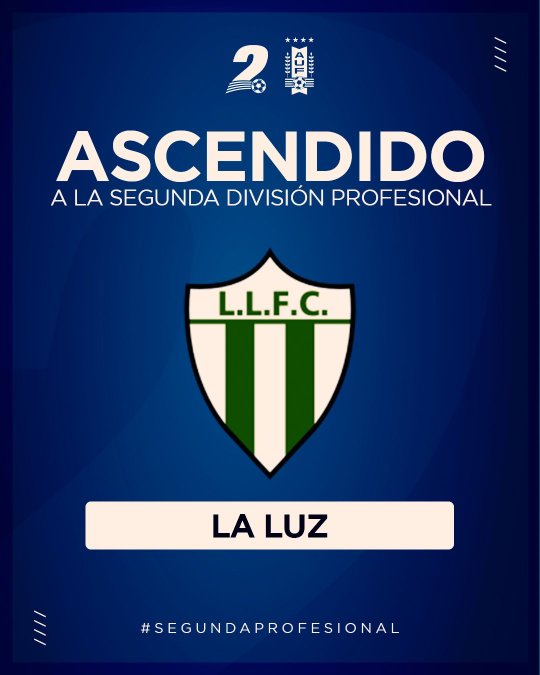
Fotos I Segunda AUF
0 notes
Photo
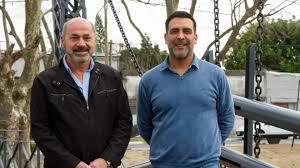
Ensenada: Internas en Juntos
En Ensenada, el jefe comunal K presentó oficialmente su lista de candidatos para las PASO. En lo que hace a las principales fuerzas opositoras, el Frente Juntos irá a internas, mientras que la sorpresa la dio Vicente “Pachuli” Ignomiriello que encabezará la nómina del Frente Vamos con Vos de Florencio Randazzo.La lista sequista de Frente de Todos la encabeza el docente Daniel Eseiza, Ornela Grilli, Esteban Spivak, Nora Turconi, Jonathan da Cruz, Andrea Giúdice, Simón Medina, Rossana Vellanich y Fabián Gutiérrez. Como concejales suplentes, irán Rocío Basso, Ezequiel Antognini, Daiana Martínez Barrientos, Pablo Ivañez, Yésica Merino y Diego Carmona.Asimismo, la nómina del Consejo Escolar la completan Cristina Ríos, Jorge Marchioni y Viviana Bustos. Como suplentes, Federico Birocho, Valentina Cejas y Ricardo Pérez Sbrascini.La nómina que representa a los partidos Pro, en alianza con Hacemos y otros sectores, lleva como precandidato a Leandro “Peto” Rojas, la integran Carolina Dil, Guillermo Cebrian, Griselda Gotelli, Juan Ramón Juárez, Cintia Elichondoborde, Ramón Dario Medina, Emilce Ramírez y Ramón Acuña, Stella Maris Palomeque, Ángel Rodríguez, Pamela Beltrami, Sergio Larrosa, Mónica Erramuspe, Marcelo Amigorena.Los aspirantes a consejeros escolares titulares serán Agustina López, Nicolas Castro Cladis, Maria Victoria Marina. Suplentes Mateo Roselot Flammini, Noelia Alegre y Diego Chilperico.Sin embargo, en el distrito la sorpresa fue la precandidatura de Vicente “Pachuli” Ignomiriello, hombre que abandonó las filas del Frente Renovador y ahora apuesta a ser el representante del Frente Vamos con Vos de Florencio Randazzo.A la candidatura de Ignomiriello, le siguen Maira Gisela Yaniz, Rodolfo Cristian Pavón, María Luisa Tortosa, Matías Segovia, Romina Valeria Riche, Julio Cesar D’ Elia, Cintia Cigara, Fabio rolando Córdoba y Nilda Alejandra Galeano, Erik José Luis.Los consejeros escolares serán: Federico Raúl González, Olga Salinas, Luis Sebastián Rodríguez. Suplentes Gina Luján Principi, Adrián Alejandro Pro y Marcela Monteguro.La lista que encabeza Asnaghi, lleva también a María Marta Gianastassio, Carlos Oscar López, Linda Debora Yael Aidar, Guillermo Ariel Vargas, Rosa Teresa Noble, Sergio Marcelo Dauma, María Laura Díaz, Rodolfo Hugo Castillo. Como concejales suplentes a Susana Beatriz Díaz, Rodolfo José Medina, María Rosa Galli, Héctor Claudio Viciconti, Olga Ester Gimenez y Luis Omar Gómez. La lista de consejeros escolares será: Mónica Graciela Giammatolo, Carlos Alberto Arcuri, María Belén Piugmarti, Rafael Alfredo Pastore Solari, Almendra Pesado y Guillermo Jorge De Stefano.El Frente Juntos disputará la interna del sector. La nómina con gran componente radical del distrito, lleva como precandidatos a Gustavo Asnaghi y María Marta Gianastassio, y pretenden ganar la disputa interna a la lista del Pro y otros sectores encabezada por Leandro “Peto” Rojas y Carolina Dil.
NTS #Ensenada #PASO2021 #Elecciones #TerceraSeccion #PBA #BuenosAires
1 note
·
View note
Text








Diego Vegezzi as Marcelo Pérez del Castillo in La Sociedad de la Nieve/Society of the Snow (2023)
#la sociedad de la nieve#society of the snow#marcelo pérez#diego vegezzi#a gift for my friends#but also for me lol#we love and cherish papacito in this house
193 notes
·
View notes
Text
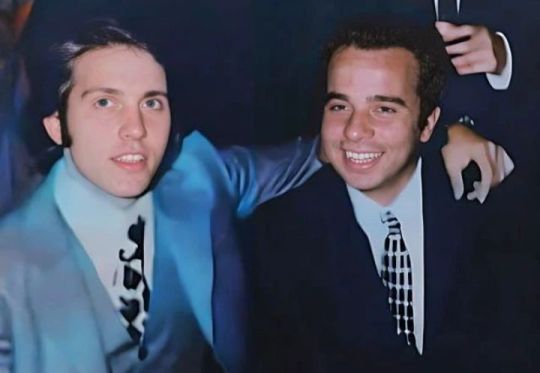
Francisco Domingo “Panchito” Abal Gerault (Left, 1951-1972)
Marcelo Pérez del Castillo (Right, 1947-1972)
Both men were starting players in the First XV of the Old Christians team 🍀 💙
Tremendous restoration work by Ignacio Anakin Occ for the @/re.viven group on Instagram!
#HAVE YOU GUYS SEEN THAT INTERVIEW BAYONA POSTED WITH MARCELOS SISTER#I NEED TO FIND IT AGAIN BECAUSE CHRIST IT LIT A FIRE OF RESPECT FOR THIS MAN IN MY HEART#(well. it added fuel to it anyway)#flight 571#la sociedad de la nieve#uruguayan history#im unsure of the photo date. so sorry about that#a lot of the ways they talk about Panchito make me shudder. harrowing but amazing#Canessa's quote of “I took the belt from the body of your best friend. but now I am your best friend” comes to mind#reposting because I got the info about Abal wrong first time round oop#i also forgot the credit for the photo restoration so thats now included#edit: Nando and Eduardo's best friends at the time respectively ..... somebody hold me
12 notes
·
View notes
Text


All 24 deceased passengers (missing the 5 members of the crew)
From left to right
Top row:
Alexis Hounié, 20
Diego Storm. 20
Daniel Shaw, 24
Enrique Platero, 22
Marcelo Pérez del Castillo, 25
Dr. Francisco Nicola, 40
Esther Nicola, 40
Gustavo Nicolich, 20
Middle row:
Gastón Costemalle, 23
Carlos Valeta, 18
Eugenia Parrado, 50
Susana Parrado, 20
Daniel Maspons, 20
Numa Turcatti, 25
Liliana Methol, 34
Francisco Abal, 21
Bottom row:
Felipe Maquirriain, 22
Graciela Mariani, 43
Juan Carlos Menéndez, 22
Guido Magri, 23
Fernando Vázquez, 20
Arturo Nogueira, 21
Rafael Echavarren, 22
Julio Martínez-Lamas, 24
Dr. and Mrs. Nicola were the team's doctor and his wife
Mrs. Mariani had nothing to do with the team. She was on her way to her daughter's wedding in Chile and booked a seat on the Uruguayan Air Force Flight 571 because it was cheaper than a regular flight.
16 notes
·
View notes
Text
The full passenger manifest of Uruguayan Air Force Flight 571, which set off from Montevido, Uruguay to Santiago, Chile, on October 12th, 1972.
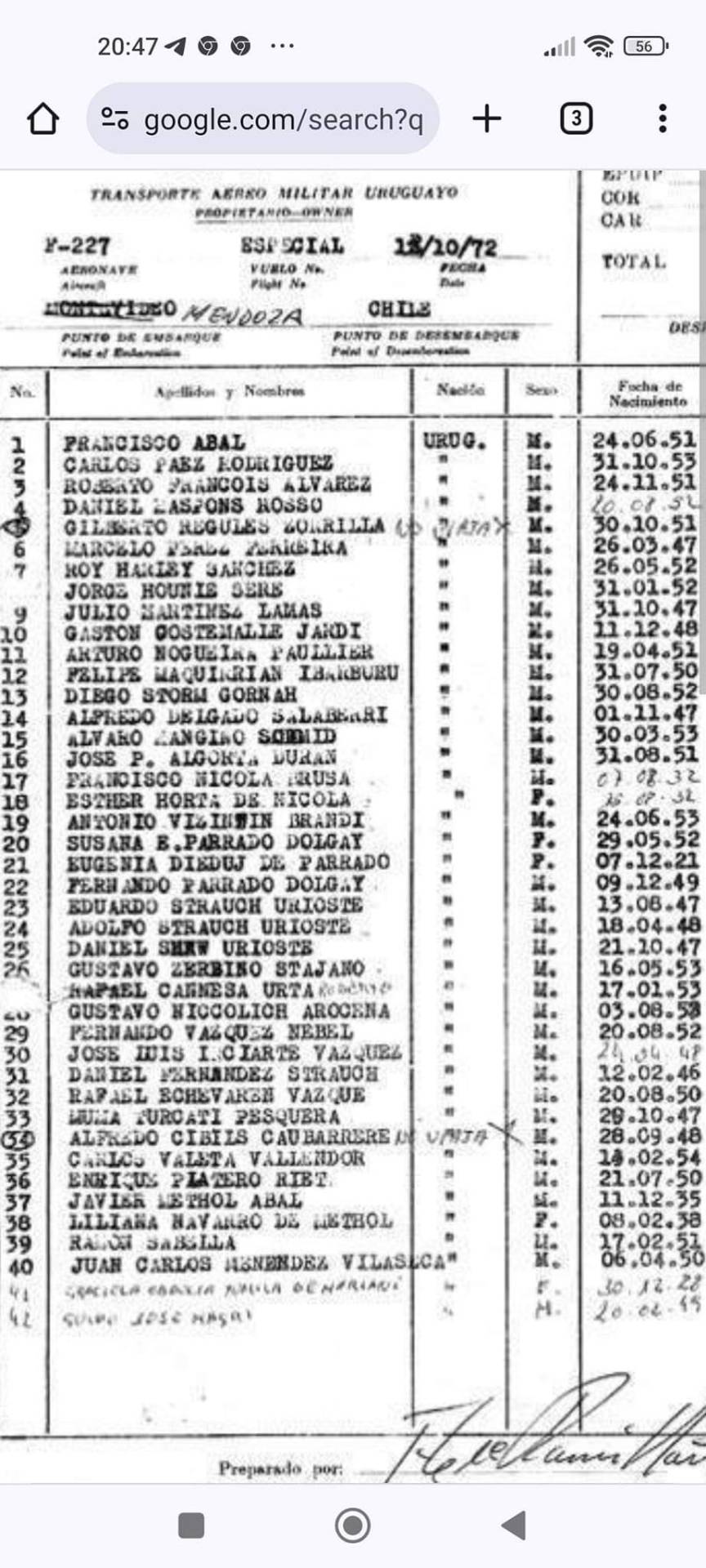
1. Francisco Abal
2. Carlos Paez Rodriguez
3. Roberto Francois Alvarez
4. Daniel Maspons Hossa
5. Gilberto Regules Zorrilla
6. Marcelo Pérez del Castillo
7. Roy Harley Sanchez
8. Jorge Hounie Sere
9. Julio Martinez Lamas
10. Gaston Costemalle Jardi
11. Arturo Nogueira Paullier
12. Felipe Maquirriain
13. Diego Storm Gornah
14. Alfredo Delgado
15. Alvaro Mangino
16. Jose P. Algorta Duran
17. Francisco Nicola Brusa
18. Esther Horta de Nicola
19. Antonio Vizintin Brandi
20. Susanna E. Parrado Dolgay
21. Eugenia Dolgay de Parrado
22. Fernando Parrado Dolgay
23. Eduardo Strauch Urioste
24. Adolfo Strauch Urioste
25. Daniel Shaw Urioste
26. Gustavo Zerbino Stajano
27. Roberto Canessa Urta
28. Gustavo Nicholich Arocena
29. Fernando Vasquez Nerel
30. Jose Luis Inciarte Vasquez
31. Daniel Fernandez Strauch
32. Rafael Echavarren Vasque
33. Numa Turcatti Pesquera
34. Alfredo Cibils
35. Carlos Valeta Vallendor
36. Enrique Platero Riet
37. Javier Methol Abal
38. Liliana Navarro de Methol
39. Ramon Sabella
40. Juan Carlos Menendez Vilascca
41. Graciela Obdulia Augusto Gumila de Mariani
42. Guido Jose Magri
#flight 571#Uruguayan flight 571#miracle in the andes#el milagro de los andes#history#history posts#passenger manifest#survival stories#disaster stories
19 notes
·
View notes
Text
Tras un fuerte consenso y trabajo, integrantes de la LXIV Legislatura del Congreso del Estado de Hidalgo designaron a los Concejos Municipales para los 84 ayuntamientos hidalguenses que encabezarán sus respectivas demarcaciones del 5 de septiembre al 14 de diciembre de 2020.
Lo anterior, derivado de la suspensión del proceso electoral para la renovación de los 84 ayuntamientos hidalguenses, el cual fue pospuesto hasta el 18 de octubre del año en curso, por la contingencia sanitaria a nivel mundial, provocada por el virus SARS-CoV-2, que causa la enfermedad coronavirus tipo Covid-19.
Durante los trabajos del quinto periodo extraordinario de sesiones correspondiente al receso del segundo periodo ordinario de sesiones correspondiente al segundo año de ejercicio constitucional de la LXIV Legislatura de Hidalgo, las y los diputados locales aprobaron por unanimidad la integración de los 84 Concejos Municipales.
Los dictámenes fueron emitidos por la Comisión de Gobernación del Congreso local que preside el diputado José Luis Espinosa Silva, quien mencionó que la administración municipal se encuentra en una situación eventual ya que los nuevos integrantes deberían tomar protesta el 5 de septiembre, sin embargo, será hasta el 15 de diciembre del presente año.
“De lo razonado, se desprende que el constituyente permanente nacional y estatal creó reglas generales para atender situaciones emergentes a falta de Ayuntamientos, por ello, se estableció que, en tanto entraran en el desempeño de su encargo los integrantes del Ayuntamiento electos mediante sufragio universal, libre, secreto y directo de los ciudadanos, se prevé designar un Ente que asuma las funciones del Ayuntamiento”, afirmó.
En pro del dictamen, el legislador Víctor Osmind Guerrero Trejo sostuvo que, “no se debe perder de vista que la razón de ser de los concejos municipales consiste en su naturaleza sustituta y emergente con respecto a la figura constitucional del Ayuntamiento, mismos que sólo podrán existir bajo las hipótesis establecidas en el marco constitucional y legal”.
Por lo anterior, la legislación establece que, “las Legislaturas de los Estados deberán designar de entre los vecinos a los concejos municipales que concluirán los periodos respectivos; en el entendido de que estos concejos estarán integrados por el número de miembros que determine la ley, quienes deberán cumplir los requisitos de elegibilidad establecidos para los regidores que son electos por el voto directo”.
Asimismo, se menciona que, “que la institución de concejos municipales no violenta el derecho de votar y ser votado, pues se trata de dos supuestos distintos propios de una democracia; el primero, cuando se accede al poder por vía del sufragio libre, secreto y universal”.
Las autoridades designadas deberán recibir, de los presidentes municipales salientes, la administración pública municipal, así como realizar los trámites correspondientes, mientras que el 14 de diciembre deberán entregarla a las autoridades que resulten electas y rindan protesta de ley el próximo 15 de diciembre del año en curso.
En un primer corte, estos son los Concejos Municipales que rindieron protesta antes de las 18:00 horas de este sábado 4 de septiembre de 2020.
Acaxochitlán: José Alejandro López Suárez Agua Blanca: Juvenal Solis Hernandez Ajacuba: Carlos Armando Arellano González Alfajayucan: Pablo Ramírez Martínez Atitalaquia: José Luis Hernández Gayosso Atotonilco El Grande: Rubén Serrano Morales Actopan: Juan Heber Sanchez Santillan Cardonal: Dzul Escamilla Marlene Chapulhuacan: Pedro Velazquez Rivera Chilcuautla: Isidro Alvarado Ramos. Tula de Allende: Verónica Monroy Elizalde Tlahuelilpan: Rolando Copca Rufino Ixmiquipan: Enrique Simón Romero Tepeji del Rio: Hugo Jiménez Hernández El Arenal: Salvador Martínez Orta Epazoyucan: Omar Padilla Palacios Francisco I Madero: Juan José Pérez Camargo Huasca: Jenaro Corona González Huichapan: Pablo Olvera Campistrano Jacala: Blanca Estela Acuña Manriquez Juarez: Javier Salcedo Hernández La Misión: Juan Rubio Vargas Meztitlan: José Armando Vite Gómez Mineral del Chico: Andrea Torres Gress Molango: Alejandro Sánchez García
Nicolás Flores: Sandy González Torres. Omitlan: Juan Carlos Zarco Cruz Pacula: Augusto Chávez Casas Pisaflores: Roberto Méndez Hernández Huejutla: Lucía Bautista Hernández San Bartolo: Miguel Ángel San Agustín Tolentino San Salvador: Francisco Angeles Santiago de Anaya: Arnulfo Mendoza Ángeles Tasquillo: Sara Trejo Fuentes Tlaxcoapan: Octavio Alejandro Maturano Tezontepec de Aldama: David Jorge Gomez Tianguistengo: Alejandra Rodríguez Escudero Tizayuca: Hipólito Zamora Soria Zimapán: Hermilo Trejo Rangel Zempoala: Rogaciano Meneses Curiel Zacualtipan : Amado Pérez Hernández Xochicoatlan: Refugio Guillermo Vite Yahualica: Marcelo Torres Tellez Felipe Orizatlan: Oscar Armando Andrade Castillo Xochiatipan: Artemio Gutiérrez del Ángel Mixquiahuala : Luz María Mendoza Pérez Tulancingo: Fernando Lemus Tlanchinol: Gabino Hernández Vite Progreso de Obregón: Almaquio Escamilla San Agustín Metzquititlán: Germán Hernández Pérez San Agustín Tlaxiaca: Daniel Cervantes Flores Singuilucan: Pablo Cárdenas Calixto Tlanalapa: Aurelio Sarabia Sánchez Acatlán: Noe Avilés Saavedra Calnali: Saul Granados Hernández Eloxochitlan: Lázaro Marcos Martínez Metepec: Rosa María Rueda Hernández Huehuetla: Sergio Sevilla Victoriano Apan: Francisco González Vargas
#gallery-0-15 { margin: auto; } #gallery-0-15 .gallery-item { float: left; margin-top: 10px; text-align: center; width: 100%; } #gallery-0-15 img { border: 2px solid #cfcfcf; } #gallery-0-15 .gallery-caption { margin-left: 0; } /* see gallery_shortcode() in wp-includes/media.php */


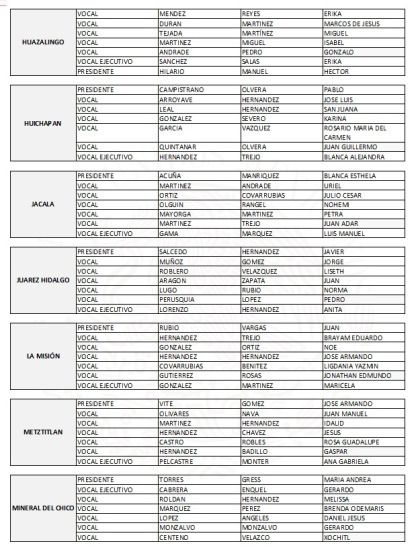

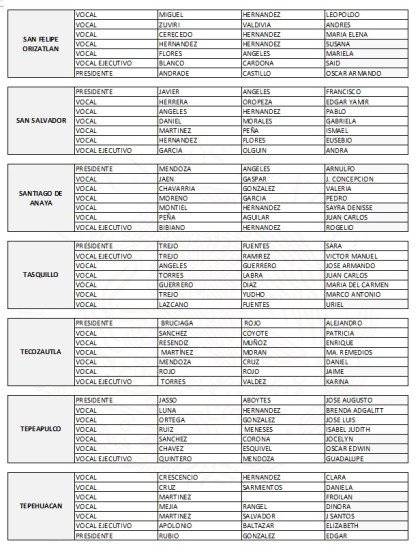


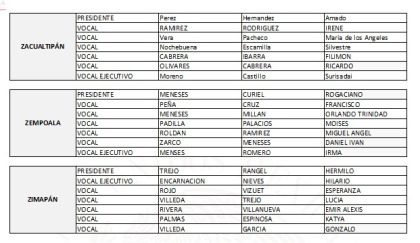
CONOCE A QUIENES GOBERNARÁN EN TU MUNICIPIO A PARTIR DE ESTE 5 DE SEPTIEMBRE Tras un fuerte consenso y trabajo, integrantes de la LXIV Legislatura del Congreso del Estado de Hidalgo designaron a los Concejos Municipales para los 84 ayuntamientos hidalguenses que encabezarán sus respectivas demarcaciones del 5 de septiembre al 14 de diciembre de 2020.
0 notes
Photo

New Post has been published on https://notimundo.com.mx/portada/canciller-atestigua-firma-para-transferir-tecnologia-para-tratamiento-del-cancer/
Canciller atestigua firma para transferir tecnología para tratamiento del Cáncer

El canciller atestigua la firma de un acuerdo para transferir tecnología india de última generación para tratamiento del cáncer
Este acuerdo permitirá a México tener acceso a una de las tecnologías más innovadoras en el mundo
Secretaría de Relaciones Exteriores | 08 de noviembre de 2022
El secretario de Relaciones Exteriores, Marcelo Ebrard Casaubon, atestiguó hoy la firma de un Memorando de Entendimiento con la empresa india ImmunoACT, el Instituto Politécnico Nacional (IPN) y el Instituto Nacional de Ciencias Médicas y Nutrición “Salvador Zubirán (INCMNSZ), mediante el cual estas instituciones desarrollarán tecnología de última generación para el tratamiento del cáncer.
El canciller explicó que este acuerdo permitirá a México tener acceso a una de las tecnologías más innovadoras en el mundo. “Es una tecnología que tiene que ver con la inmunoterapia para combatir el cáncer. En vez de usar quimioterapia o radioterapia, lo que se hace es activar células de nuestro propio organismo contra el cáncer, es un gran paso en la historia médica de nuestro país”, señaló.
Con la firma de este acuerdo entre los titulares del IPN, Arturo Reyes Sandoval, y del INCMNSZ, José Sifuentes Osornio, así como del primer ministro Modi y del ministro Jaishankar, se formaliza la relación de cooperación entre México y la India para desarrollar proyectos de investigación, intercambio de conocimientos, construcción de capacidades y transferencia de tecnología sobre terapias celulares novedosas para el tratamiento de distintos tipos de cáncer de la población mexicana, tercera causa de muerte en el país.
Ebrard estuvo en la India
El pasado mes de abril, el secretario Ebrard realizó un viaje a la India junto con una delegación de los sectores de salud y educación con el objetivo de fortalecer el sistema de salud mexicano por medio de la negociación de acuerdos de transferencia de tecnología.
En la sede de Relaciones Exteriores, el director general del IPN explicó que esta casa de estudios va a contribuir junto con el INN “Salvador Zubirán” en el desarrollo de la tecnología de terapia celular, es decir, en la parte de ciencia básica y desarrollo inicial.
“En el IPN vamos a ver cómo preparar a las células inicialmente, cómo tener los vectores virales listos para transducir las células y hacerlas más potentes para matar los tejidos neoplásicos”, puntualizó.
Reyes Sandoval mencionó que con el INN “Salvador Zubirán” será una relación simbiótica, toda vez que ellos se encargarán de administrar estas células.
Agregó que estas terapias además de ser un tratamiento innovador a nivel mundial, posibilitan que las personas más necesitadas de México puedan tener acceso a ellas y que a través de este convenio ahora estarán disponibles en nuestro país.
La empresa ImmunoACT se enfoca en el desarrollo de terapias de células T con receptor de antígeno quimérico (CAR, por sus siglas en inglés), las cuales han innovado en el tratamiento de distintos tipos de cáncer y otras enfermedades como las autoinmunes. Actualmente no hay este tipo de terapias en México y tienen un costo muy alto para los pacientes. La empresa se ha dado a la tarea de diseñar terapias con precios más accesibles para el bienestar de todas las personas.
Fue un evento remoto
El evento se llevó a cabo de manera remota desde las oficinas centrales de ImmunoACT en Mumbai, India, y desde la Ciudad de México en el edificio de la Cancillería, con la participación como testigos de honor del director general de Planeación y Evaluación de la SRE, Carlos Javier Castillo Pérez, y el director general de Política de Cooperación Internacional de la Agencia Mexicana de Cooperación Internacional para el Desarrollo (Amexcid), Javier Dávila Torres; así como de David Kersenobich, exdirector del INCMNSZ, y de Rahul Purwar, director general de InmunoACT.
Con estas acciones de cooperación internacional para el desarrollo, que impulsa la Secretaría de Relaciones Exteriores, a través de la Amexcid, la diplomacia contribuye a incentivar y promover el desarrollo de la ciencia y la tecnología, vinculando los sectores de salud y académico y de investigación, para enfrentar los grandes desafíos globales en materia de salud, llevando un beneficio directo a la sociedad mexicana.
0 notes